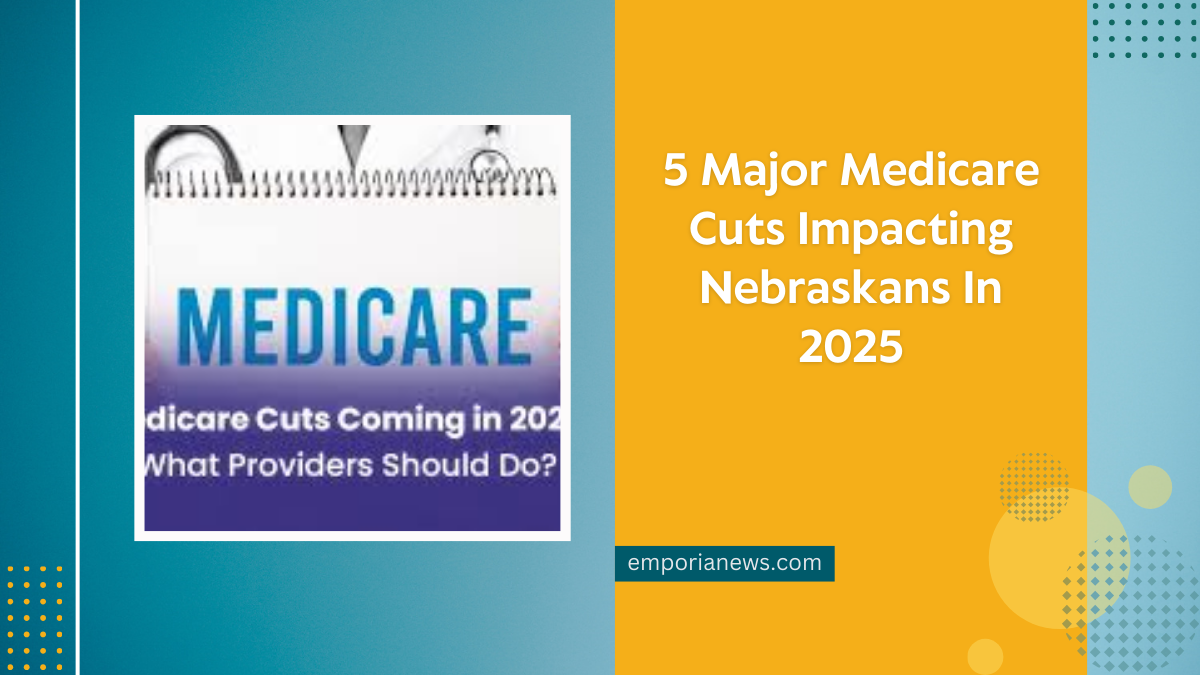Medicare, the federal health insurance program serving millions of Americans, is undergoing significant changes in 2025.
These proposed adjustments, intended to reduce federal spending, may have far-reaching effects on healthcare access, particularly in Nebraska.
From payment reductions for providers to cuts in Medicare Advantage plans, here’s a detailed look at the potential implications.
Impact on Healthcare Providers
A proposed 2.8% reduction in Medicare payments is raising alarms among healthcare providers. For years, Medicare payment rates have lagged behind inflation, and this additional cut would further strain healthcare professionals.
Many doctors may limit the number of Medicare patients they accept or stop accepting Medicare altogether. This could result in longer appointment wait times, fewer specialized care options, and reduced access to necessary medical services.
Effects on Medicare Advantage Plans
Medicare Advantage plans, which provide alternative coverage options for seniors, are also under threat. Many insurers are scaling back their offerings or discontinuing certain plans altogether due to financial pressures. This could leave millions of seniors scrambling to find new coverage during the open enrollment period.
For beneficiaries, switching plans often means losing established relationships with trusted healthcare providers and adjusting to new networks, coverage rules, and out-of-pocket costs.
For those in rural areas of Nebraska, where options are already limited, this disruption could be particularly challenging.
Potential Changes to Covered Services
Proposals also include eliminating certain optional Medicaid services that benefit many dual-eligible beneficiaries—those who qualify for both Medicare and Medicaid.
These services, such as dental care, mental health support, and prescription drug coverage, are vital for maintaining overall health.
Without these services, individuals may face higher out-of-pocket expenses or be forced to forgo essential care. This could lead to poorer health outcomes and increased strain on emergency services as patients delay treatment until conditions worsen.
Advocacy and Legislative Efforts
In light of these potential changes, advocacy efforts are intensifying. Organizations representing healthcare providers, such as medical associations and patient advocacy groups, are urging Congress to address these issues before the cuts take effect.
They are calling for increased funding and policy adjustments to protect beneficiaries and ensure that providers can continue to offer high-quality care.
| Proposed Change | Affected Services | Potential Impact | Stakeholders Concerned | Advocacy Actions |
|---|---|---|---|---|
| 2.8% Medicare Payment Reduction | Physician Services | Reduced access to care | Healthcare Providers | Legislative lobbying |
| Insurer Cutbacks | Medicare Advantage Plans | Loss of plan access | Seniors | Reform efforts |
| Medicaid Optional Services Cuts | Dental, Mental Health, Prescriptions | Reduced coverage | Medicaid and Medicare Beneficiaries | Public opposition |
| Home Healthcare Cuts | In-home Services | Decreased senior support | Home Care Agencies | Community advocacy |
The table highlights the key changes, their impacts, and the stakeholders involved, emphasizing the widespread effects these proposed cuts could have.
As these changes approach, Nebraskans must take proactive steps to protect their healthcare access. Reviewing current healthcare plans, consulting with providers, and exploring alternative options during open enrollment are crucial actions.
Additionally, residents can engage in advocacy efforts by contacting local representatives and joining community initiatives to push for reforms.
FAQs
How will Medicare payment reductions affect access to care?
The 2.8% payment reduction may lead some providers to limit the number of Medicare patients they accept or stop accepting Medicare entirely, resulting in fewer care options and longer wait times.
What should I do if my Medicare Advantage plan is discontinued?
If your plan is no longer offered, you’ll need to select a new one during the open enrollment period. Work with a Medicare advisor or use the Medicare Plan Finder tool to explore coverage options that meet your needs.
Are optional Medicaid services being eliminated for everyone in Nebraska?
Optional services like dental, mental health, and prescriptions may be cut for Medicaid recipients. These changes primarily target Medicaid but can impact dual-eligible beneficiaries who rely on both programs.
What advocacy steps can I take to protect my healthcare access?
Stay informed about the proposed changes, join local advocacy groups, and contact your elected representatives to express your concerns and push for policies prioritizing healthcare access.
Will rural areas in Nebraska face additional challenges due to these cuts?
Yes, rural areas may experience even greater difficulties, as they already face limited healthcare options. Fewer providers accepting Medicare could exacerbate these issues, leading to significant access challenges for rural residents.




